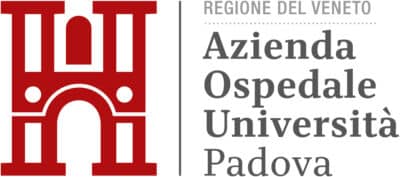

The Second-level Short Specialisation Degree in Andrological Endocrinology, Reproductive Medicine and Sexuality Disorders provides training in the biological, genetic, embryological, psychological, nutritional, lab diagnostics and instrumental diagnostics field, in sectors concerning reproductive physiopathology, medical andrology, and the causes and treatments of testicular endocrine insufficiency, with their related complications. It also provides knowledge in the field of sexually transmitted diseases and gender incongruities.
Purpose of the Second-level Short Specialisation Degree is providing an autonomous managerial capacity, with specific competences for each professional figure: doctors will deal with the clinical aspects of all the topics covered; biologists, biotechnologists and chemists will receive specific training on assisted procreation; psychologists will cover the clinical-psychological and psycho-sexual aspects of all the topics covered, while nutritionists will cover the topics from a dietary and nutraceutical standpoint.
The Second-level Short Specialisation Degree in Andrological Endocrinology, Reproductive Medicine and Sexuality Disorders provides training on the biological, genetic, embryological and psychological field, on reproductive physiopathology, andrological medicine, causes and treatments of testicular endocrine insufficiencies and complications, male infertility, medically assisted reproduction, fertility preservation techniques, sexual dysfunction medicine and treatment.
It also provides competencies on sexually transmitted diseases and gender incongruence, from a diagnostic, therapeutic and follow-up standpoint.
Some of the specific features of the Second-level Short Specialisation Degree include clinic and medical-diagnostic activities, and visits to cellular biology and molecular biology labs. It will also provide the option of visiting affiliated assisted procreation centres.
The Second-level Short Specialisation Degree in Andrological Endocrinology, Reproductive Medicine and Sexuality Disorders trains professional figures with clinical-diagnostic and biological experience in reproductive medicine, based on the medical specializations (endocrinology, urology, gynecology, food sciences), biological specializations (biology, biotechnologies, embryology, food sciences).
The Second-level Short Specialisation Degree in Andrological Endocrinology, Reproductive Medicine and Sexuality Disorders provides training on:
- Andrological aspects of metabolic diseases: study of andrological issues in patients with metabolic diseases.
- Seminology and cryobiology 1: cryoconservation of male and female gametes and embryos.
- Uro-andrological diseases: surgical fertility and sexual dysfunction treatments.
- Andrological endocrinology: endocrine diagnostics for infertile males.
- Reproductive biotechnologies: gamete and embryo analysis.
- Physiopathology of male infertility: physiology and physiopathology of hypothalamus-pituitary gland-testicle alterations and seminal tracts.
- Sexuality medicine: gender identity disorders.
- Microbiology and virology: infections and couple infertility, infections and MAP.
- Clinical andrology: infertile male diagnostics.
- Instrumental andrological diagnostics: ultrasounds and invasive exams.
- MAP 1 and MAP 2 techniques: d IUI, FIVET and ICSI techniques: clinical aspects.
- Diagnostics and treatment of uro-genital tract diseases: diagnostic imaging and surgical treatment.
- Infectious diseases and MAP techniques: sperm selection in HIV, HBV, HCV and HPV carriers.
- Gamete and embryo culture methods: egg culture, in-vitro egg maturing, embryo and blastocyst culture.
- Metabolic diseases as cause of infertility: diabetes and metabolic syndrome in the andrological, fertility and sexual dysfunction field.
- Testicular cytology and histology: spermatogenesis cells. Hysto-cytopathological frameworks.
- Nutrition and andrological pathologies: obesity and eating disorders as cause of andrological pathologies. Diagnosis and treatment.
- Gamete and embryo cryoconservation techniques: cryoconservation techniques for ejaculated, epididymal and testicular sperm. Egg cryo-conservation techniques. Vitrification. Embryo cryo-conservation techniques.
- Sexuality and human reproduction psychology: diagnostics and treatment of psychological disorders related to infertility and sexual dysfunctions.
The Second-level Short Specialisation Degree in Andrological Endocrinology, Reproductive Medicine and Sexuality Disorders entails 282 hours of lessons, 30 hours of workshops and 250 hours of traineeship. Lessons will be grouped in a series of 3-day residential meetings.
The Second-level Short Specialisation Degree’s characterizing aspects include frequent presence in clinics and medical-diagnostics units, and presence in cellular biology and molecular biology labs. Attendees may also attend ultrasound diagnostics sessions, genitoscopy sessions, and laser treatment sessions. There will also be the option to visit the Master’s partner assisted reproduction centres.
Access to seminology, molecular biology labs and clinics will be agreed upon with the Director of the UOC of Andrology and Reproductive Medicine, and with the facility managers. Only observation activities will be carried out, on topics such as seminology, cryo-conservation, molecular biology, reproductive genetics, reproductive system ultrasounds, and patients’ clinical evaluation.
The Second-level Short Specialisation Degree’s partners include highly-professionals national and international organizations, in the reproductive and fertility preservation sector. In particular, the “9.baby”, “Genera Life IVF Network Italia”, “Centro di PMA del Centro di medicina di San Donà di Piave (VE), “Donna Salus, Bolzano”, “Centro di PMA e Preservazione della fertilità, AOUI Verona” and “SODC PMA; AOU Creggi” centres are outstanding scientific and medical institutions for assisted reproduction and gamete cryo-conservation. These internationally-known facilities apply study protocols shared by leading reproductive medicine centres worldwide.
Moreover, the Faculty avails itself of important specialists, from leading Italian Universities, expert in sexuality medicine, metabolic diseases and gender diseases. Professors include opinion leaders in the reproduction field, such as Dr. Andrea Borini and Dr. Filippo Maria Ubaldi, in the andrological urology field, such as Prof. Massimo Iafrate and Prof. Giacomo Novara, and in the nutritional field, such as Dr. Francesco Francini.
The general ranking of merit for the academic year 2023/24 will be published on the Italian page of this Master according to the timing provided in the Call.
Information
FAQ
Yes, a mandatory attendance of 70% is required.
Physical attendance to the lessons and traineeships is required, unless imperative institutional commitments or health conditions (duly certified) require distance-learning methods. Therefore. online attendance may be agreed upon only on exceptional, agree and documented cases, to be defined well in advance.
All the labs and clinics of the hosting facility are available to welcome attendees, as agreed with the Director and the administrative office, at least 15 days in advance.
Clinical and lab activities are only observational. However, during the traineeship, there may be direct activities on lab samples.
They will be interactive academic lessons, during which each topic can be discussed both during the lesson and during its discussion. Since there will be social occasions (coffee breaks, business lunches and dinners) involving both attendees and professors, those spaces may be partially devoted to explore specific topics and establish new collaborations.

